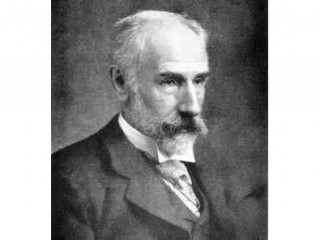
Alfred Marshall biography
Date of birth : 1842-07-26
Date of death : 1924-07-13
Birthplace : London, England
Nationality : British
Category : Science and Technology
Last modified : 2010-11-21
Credited as : Economist, founder of the "new economics",
The English economist Alfred Marshall was the founder of the "new economics." He rejected the traditional definition of economics as the "science of wealth" to establish a discipline concerned with social welfare.
Alfred Marshall was born in London on July 26, 1842, the son of a cashier at the Bank of England. At Cambridge he abandoned plans to enter the Anglican clergy and graduated in mathematics. Elected to a Cambridge fellowship, Marshall planned then to pursue molecular physics. Instead, he was drawn first to metaphysics, particularly ethics, which he studied in Germany for a year, then to psychology, and finally to economics as a practical means for implementing ethics.
In 1868 Marshall's college, St. John's, established a special lectureship for him in moral science. In 1875 he returned from a study of trade protection in the United States to attempt to make political economy a serious subject at Cambridge. When, in 1877, he married Mary Paley, a former student then lecturing in economics at Newnham, the women's college at Cambridge, he became ineligible to continue his fellowship. University College, Bristol, had just been founded, and Marshall, a firm believer in extending adult educational opportunities, agreed to become first principal and professor of political economy. In 1883 Marshall became a fellow of Balliol and lecturer in political economy to students preparing for the Indian civil service. Two years later he took the chair in political economy at Cambridge. Until his retirement in 1908, Marshall dominated a singularly influential school of economics, with separate and tripos status after 1903. From 1890 until his death on July 13, 1924, Marshall was the patriarch of the new economics.
In 1890 Marshall's Principles of Economics was welcomed enthusiastically by economists and a popular audience as a revolutionary work in economics. His other major works were The Economics of Industry (1879), written with his wife; Elements of Economics of Industry (1892); and Industry and Trade (1919). Besides his writing and dedicated teaching, Marshall created the British Economics Association in 1890 (Royal Economics Society after 1902), and he directly influenced government policy on currency, prices, gold and silver, fiscal affairs, poor relief, local taxes, and international trade.
The content and method of Marshall's economics were largely original, but his basic assumptions were derived from the 19th-century belief that social reform depended initially upon the reform of character. He never doubted that every man sought his own, or at least his children's, best interest; that "work" purified human nature, stimulating personal and social progress; or that capitalism would be inherently progressive if it was made more efficient.
Marshall's economic analysis began with the quasistatic, evolutionary institutions of free enterprise and developed as a search for measurable regularities in economic phenomena. Since money could be measured regularly, Marshall studied prices. His most important technical contributions were in price and value analysis. The value of things, which he recognized as necessarily relative and subjective, was expressed as money prices, reached through an elastic play of forces behind demand and supply. "Utility," the power of goods and services to satisfy consumers' wants, and demand fluctuated in relation to price. Price, in turn, was determined both by the cost of production and by judgments about utility, the two inseparable blades of the economic scissors. Utility, being subjective, was not measurable, but it did reflect a psychological attitude critical in any economic activity. This was typical of the "marginal disutility of labor," that point at which the worker decided that he had nothing further to gain from additional work.
Nineteenth-century political economy ended and the new economics began with Marshall's pioneering use of econometrics; his creation of economics as a rigorous discipline with its own content and method; his attempt to unify competitive economic theories and practices; and his belief in the evolutionary nature of economic knowledge. Marshall's overweening influence led two generations of economists in Britain and America to spend their professional lives discussing, restating, developing, interpreting, altering, and questioning his doctrines and tools of analysis.
The Memorials of Alfred Marshall (1925), edited by A. C. Pigou, is an indispensable collection, including John Maynard Keynes's classic essay "Alfred Marshall, 1842-1924." Marshall's testimony before Parliamentary commissions was published for the Royal Economic Society as Official Papers (1926). Marshall's wife, Mary Paley Marshall, wrote What I Remember (1947). There is a great deal of interpretation and commentary on Marshall. Two of the most objective accounts, written within a proper historical context, are in Terence Wilmot Hutchison, A Review of Economic Doctrines, 1870-1929 (1953), and Robert Lekachman, A History of Economic Ideas (1959).
Coase, R. H. (Ronald Henry), Essays on economics and economists, Chicago: University of Chicago Press, 1994.
Groenewegen, Peter D., A soaring eagle: Alfred Marshall, 1842-1924, Aldershot; Brookfield, Vt.: E. Elgar, 1995.
















